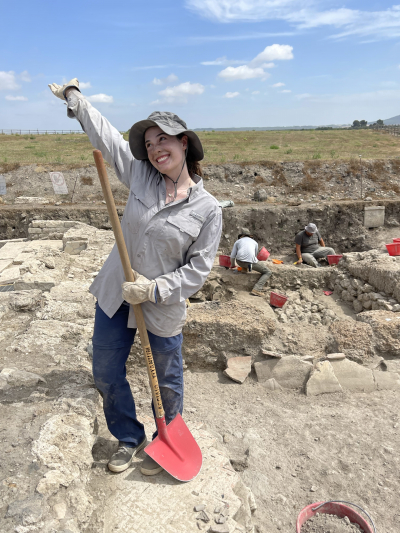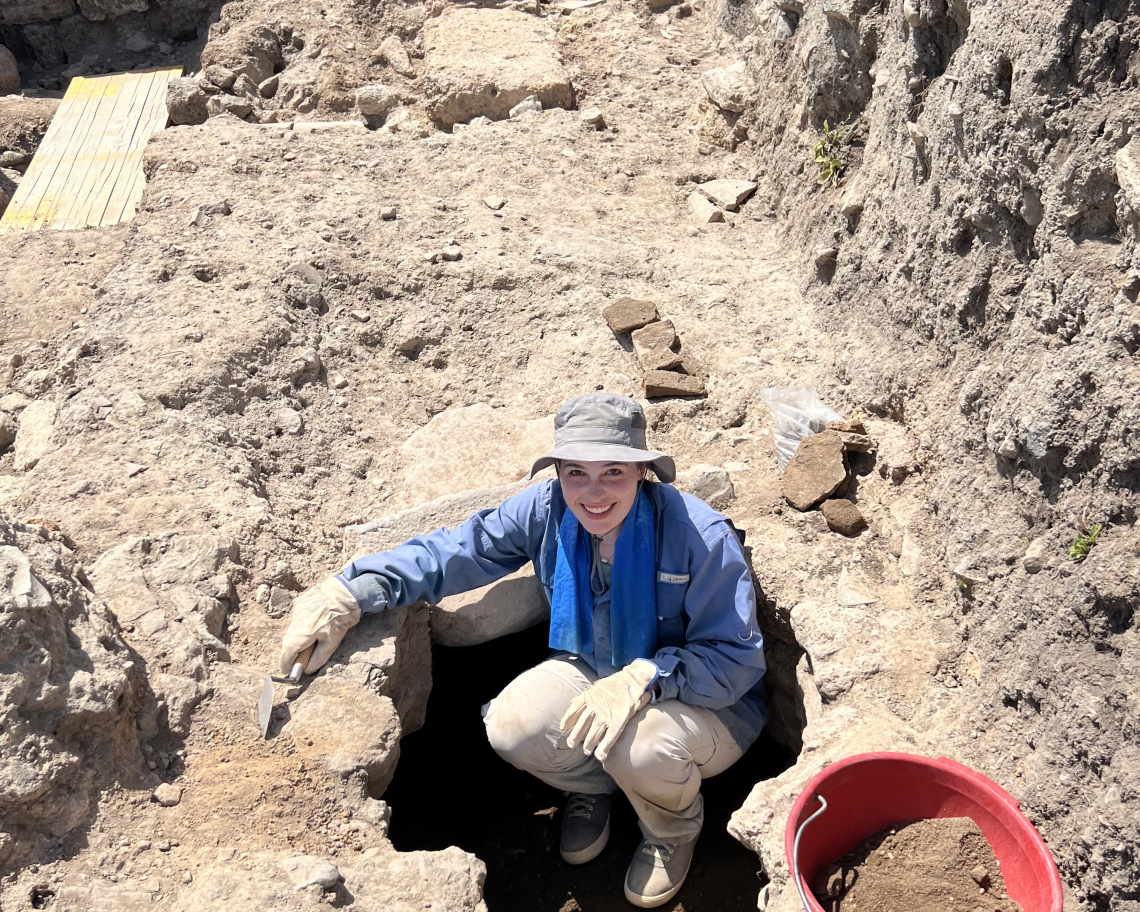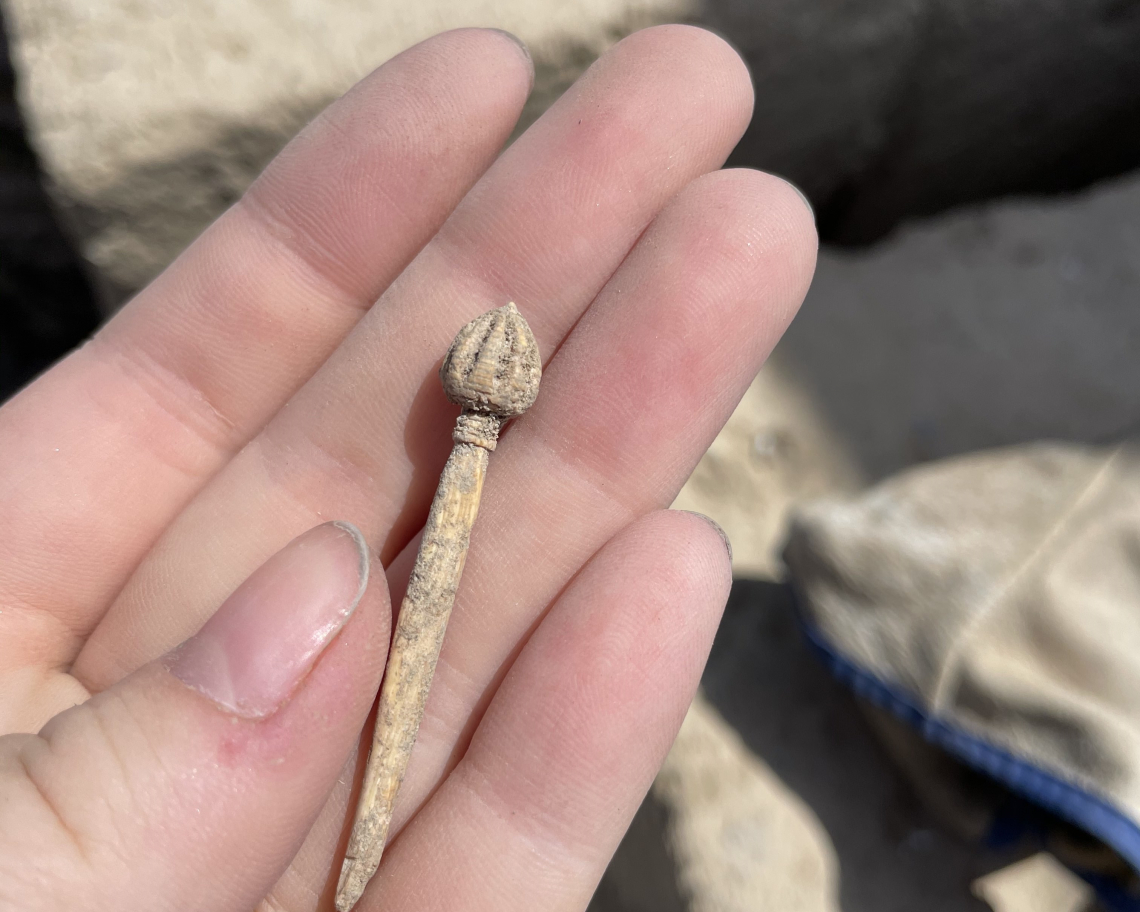Skylar Brogan: Vulci 3000 Project

Thanks to the research travel funding from the Classical Studies Department this summer, I was able to explore both the discipline of archaeology and the history and art of Italy through the Vulci 3000 Project. As an Economics and Art History major, I was virtually completely new to archaeology, but the Trench Supervisors, especially Dani Vander Horst, worked closely with me to teach me the excavation and documentation methods I needed to succeed this summer. I was able to gain an incredible amount of knowledge and new skills in an extremely short time, and this was an experience I will never forget.
I worked for six weeks under Professor Maurizio Forte to excavate, clean, and document ancient artifacts from Roman and Etruscan civilizations as a part of the Vulci 3000 Project. This Roman Forum site, located about an hour and a half north of Rome, helps archaeologists better understand urban life and transitions between the Etruscan and Roman periods. My roles at this project included directly excavating by digging in the trench, sieving materials from the cistern, and cleaning, organizing, and labeling artifacts for storage/display. Additionally, this project has a strong digital component, employing new and cutting-edge technological techniques to the field of archeology. Because of this, I learned to work with tools like photogrammetry and geographic information systems (GIS), which help to digitally document the excavation in a more accessible and long-lasting way.
Throughout my time excavating, I found some fascinating items. Some of my most frequent discoveries included animal bones and teeth and fragments of tiles and pottery. At the end of the summer, I was even able to tell the smallest fragments of these items apart and separate ceramics into their typologies. In my opinion, my most exciting finds were helping to uncover a new cistern to be excavated next year, finding an ornate hair pin while clearing dirt from a well, and discovering a coin while searching in the sieve.
On my days off from working at the site, I was able to travel across Italy and see cities like Rome, Vatican City, Naples, Pisa, Florence, and Siena and learn about their art and history, which is an extremely valuable experience for my Art History degree and education. I would not have been able to do this if it weren’t for this project and the generous funding I received.







